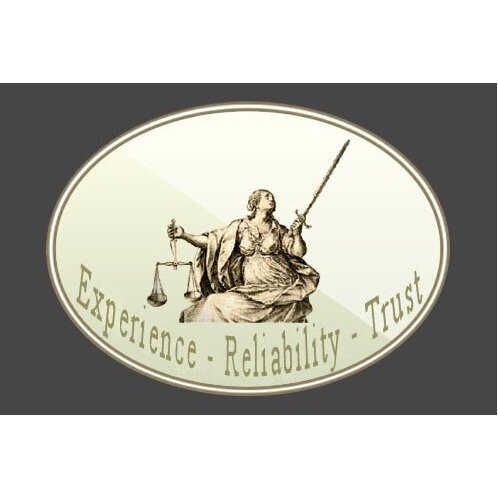Best Faith-Based Law Lawyers in Pattaya
Share your needs with us, get contacted by law firms.
Free. Takes 2 min.
List of the best lawyers in Pattaya, Thailand
About Faith-Based Law in Pattaya, Thailand
Faith-Based Law in Pattaya, Thailand, refers to the legal applications and considerations that arise from the intersection of religious beliefs and the civil legal system. Given Thailand's rich cultural tapestry and religious diversity, particularly with a significant Buddhist population and active communities of other faiths, understanding how these beliefs integrate with local laws is essential. While Buddhism is the predominant faith, other religions such as Islam, Christianity, and Hinduism play significant roles in societal norms and legal guidance. Faith-Based Law primarily focuses on family law, inheritance issues, religious freedom, and the potential legal conflicts that arise when religious practices intersect with Thailand's secular legal system.
Why You May Need a Lawyer
Individuals may find themselves needing legal assistance in Faith-Based Law in several situations. Such scenarios include, but are not limited to, the following:
- Disputes concerning religious practices and local laws.
- Marriage and divorce proceedings involving parties of different faiths.
- Inheritance matters where religious customs differ from civil law.
- Legal issues related to the establishment or operation of religious organizations.
- Problems arising from employment matters that involve religious discrimination or bias.
- Conflicts between public policy and individual religious rights.
Local Laws Overview
In Pattaya, and Thailand in general, the legal system is a civil law framework influenced by common law traditions. While the national legal system does not directly enforce religious laws, it respects and upholds the freedom of religion as per the Constitution of Thailand. Key areas where Faith-Based Law is prominent include:
- Marriage and Divorce: Thai law recognizes civil marriages, but religious ceremonies may have additional cultural significance. Inter-faith marriages may involve complex legal considerations.
- Inheritance: While civil law governs inheritance, families may choose to follow religious customs, which could potentially conflict with statutory laws.
- Freedom of Religion: Thailand's Constitution guarantees freedom of religion, but this can sometimes clash with local regulations or practices.
Frequently Asked Questions
What is the role of faith in legal matters in Pattaya?
Faith plays a cultural and ethical role more than a legal one. While religious beliefs influence personal decisions, the legal system is secular. Faith-Based Law comes into play when personal religious norms intersect with civil law requirements.
Can religious laws supersede Thai civil laws?
No, religious laws cannot supersede Thai civil laws. However, the legal system allows for religious customs to be considered, especially in personal matters like marriage and inheritance, as long as they do not conflict with public order or the rights of others.
How does the Thai legal system accommodate religious diversity?
The Thai legal system respects all religions and provides constitutional protection for the freedom of religion. It tries to accommodate religious diversity within its cultural and legal framework, balancing traditional customs with statutory laws.
Are there legal services specific to Faith-Based Law in Pattaya?
Yes, there are legal practitioners in Pattaya who specialize in areas where faith and law intersect. They can provide advice on how to navigate conflicts that arise between religious beliefs and legal requirements.
How does interfaith marriage work legally in Pattaya?
Interfaith marriages are legally recognized in Thailand. However, couples may face additional procedural steps to reconcile religious customs with civil registration, and legal advice can be beneficial.
What should I do if my religious practices conflict with local laws?
If there's a conflict between your religious practices and local laws, you should seek legal advice to understand your rights and any possible resolutions or accommodations.
Are religious organizations subject to local laws in Pattaya?
Yes, religious organizations must comply with local laws, including regulations around property, employment, and charity work, while they also benefit from certain protections under the law for religious institutions.
How are inheritance laws affected by religion?
While Thai statutory law governs inheritance, families may redistribute assets according to religious customs if all parties agree. It's important to ensure these customs do not contradict public policy.
Can I claim religious discrimination in employment?
Yes, if you experience discrimination based on your religious beliefs in an employment setting, you can file a complaint through proper legal channels, as discrimination on religious grounds is prohibited.
Is it necessary to consult a lawyer specialized in Faith-Based Law?
While not always necessary, consulting a lawyer who specializes in Faith-Based Law can be highly beneficial, especially in complex cases where religious practices significantly impact legal situations.
Additional Resources
For individuals seeking further assistance or information on Faith-Based Law in Pattaya, the following resources may prove useful:
- Ministry of Justice, Thailand: Provides information about legal rights and special units for religious and cultural affairs.
- Thailand Lawyers Council: Offers professional services and resources for finding specialized legal representation.
- Local Religious Communities: Many local faith groups offer guidance and support services which can aid in legal matters.
- Pattaya City Hall: Provides information on local legislation and community services available.
Next Steps
If you require legal assistance regarding Faith-Based Law in Pattaya, consider taking the following steps:
- Contact a local lawyer who specializes in Faith-Based Law to discuss your specific situation and options.
- Gather all relevant documentation and information pertaining to your case beforehand.
- Seek advice from your local religious leader about any customs or practices that may impact your legal situation.
- Utilize offered resources from governmental bodies to ensure your understanding and compliance with local regulations.
- Stay informed about both your legal rights and any religious teachings pertinent to your issue by consulting with legal and religious experts.
Lawzana helps you find the best lawyers and law firms in Pattaya through a curated and pre-screened list of qualified legal professionals. Our platform offers rankings and detailed profiles of attorneys and law firms, allowing you to compare based on practice areas, including Faith-Based Law, experience, and client feedback.
Each profile includes a description of the firm's areas of practice, client reviews, team members and partners, year of establishment, spoken languages, office locations, contact information, social media presence, and any published articles or resources. Most firms on our platform speak English and are experienced in both local and international legal matters.
Get a quote from top-rated law firms in Pattaya, Thailand — quickly, securely, and without unnecessary hassle.
Disclaimer:
The information provided on this page is for general informational purposes only and does not constitute legal advice. While we strive to ensure the accuracy and relevance of the content, legal information may change over time, and interpretations of the law can vary. You should always consult with a qualified legal professional for advice specific to your situation.
We disclaim all liability for actions taken or not taken based on the content of this page. If you believe any information is incorrect or outdated, please contact us, and we will review and update it where appropriate.













